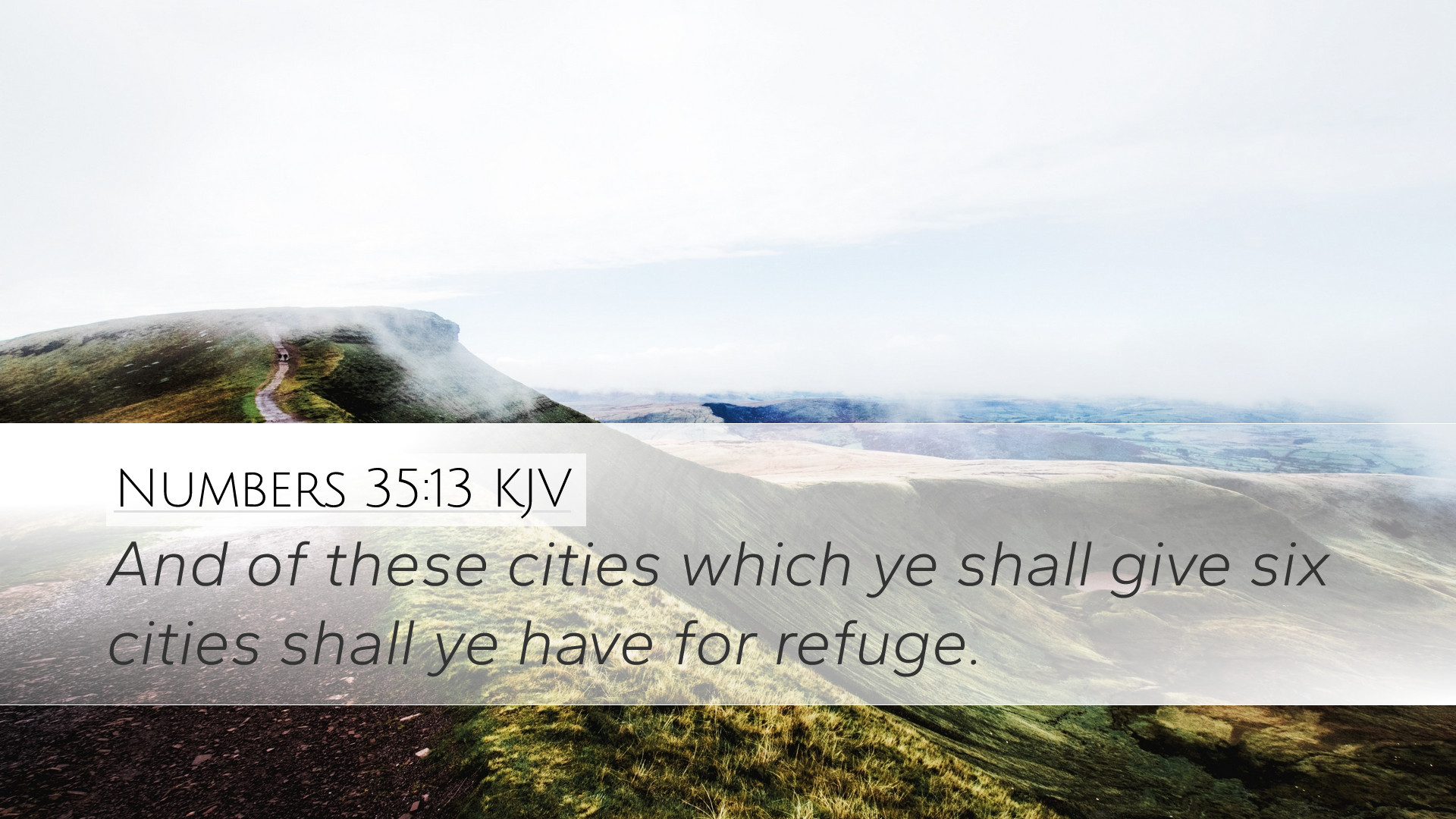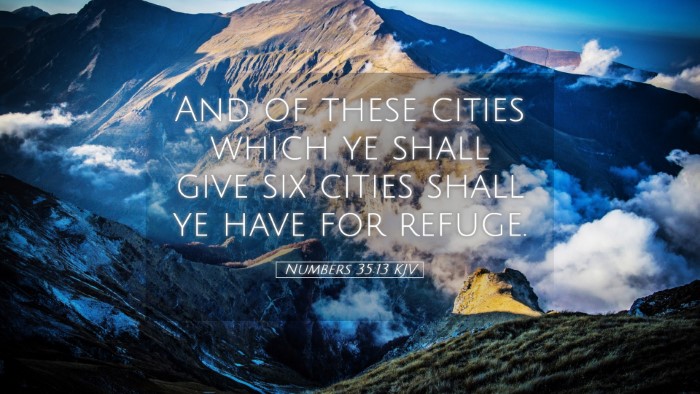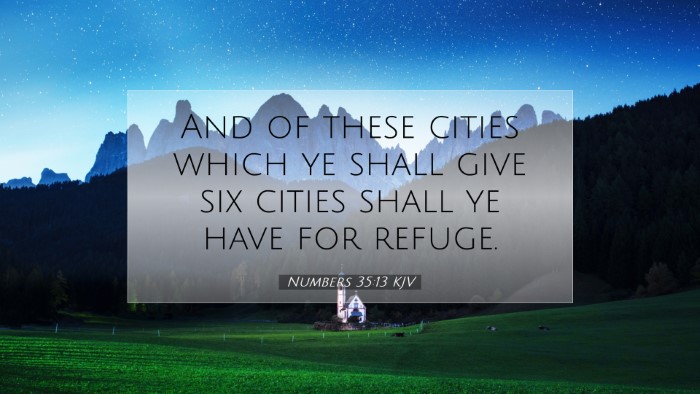Commentary on Numbers 35:13
Bible Verse: "And of these cities which ye shall give unto the Levites, six cities shall ye have for refuge." (Numbers 35:13)
Introduction
The establishment of cities of refuge in Numbers 35:13 is pivotal within the Mosaic Law, providing not only a legal sanctuary but also a profound reflection of God's mercy and justice. The provision of these cities illustrates God's care for His people and emphasizes the importance of justice tempered with mercy, particularly concerning those who accidentally cause harm.
Insights from Public Domain Commentaries
Matthew Henry's Commentary
Matthew Henry emphasizes that the cities of refuge serve as a critical feature in the law, showing that God cares for those who may find themselves guilty under the circumstances of unjust situations. He points out that these cities were designed for the accidental manslayer, highlighting God’s compassion in providing a means of protection and the opportunity for redemption.
- Purpose of Refuge: Henry notes that refuge cities represent a place of safety for those who had committed an unintentional act that led to death, thus introducing the concept of distinguishing between murder and manslaughter.
- God's Justice: Justice and mercy are harmonized in this provision, as it prevents the avenger of blood from enacting rash vengeance.
Albert Barnes' Commentary
Albert Barnes expands upon the geographical and theological aspects of the cities of refuge, noting that their locations were strategically chosen to be accessible to all Israelites, thus symbolizing that God’s grace is readily available to all who seek it.
- Accessibility: Barnes explains that the towns were spread throughout the land, demonstrating God’s intention for His refuge to be within reach, symbolizing the accessibility of God’s mercy.
- Divine Protection: He comments on the symbolism of these cities as reflections of Christ, the ultimate refuge for sinners, suggesting that just as there is a physical retreat for the Israelites, there is a spiritual haven in Christ.
Adam Clarke's Commentary
Adam Clarke brings a detailed examination of the legal frameworks that govern the cities of refuge, including the qualifications for entering and remaining in these cities.
- Legal Specifications: Clarke emphasizes the necessity of establishing a fair trial process before the congregation, illustrating the importance of due process in matters of life and death.
- Symbolic Interpretation: He argues that these cities also signify the church, wherein believers may find sanctuary from sin and its consequences, emphasizing an ecclesiological dimension to the verse.
Theological Reflections
The provision of cities of refuge can be seen as a rich metaphor for God's redemptive work throughout scripture.
- Grace and Redemption: The cities serve as a paradigmatic image of the grace that God extends to sinners. Just as the cities provided shelter, Christ provides refuge from sin and condemnation.
- Community Responsibility: The Levites’ role in these cities demonstrates the community’s responsibility to protect and provide for those in need, reflecting the collective nature of God's family.
- Divine Justice and Human Law: This passage accentuates the balance between divine justice and human law, reminding readers of the need for compassion in governance.
Practical Applications
As leaders, pastors, and scholars reflect on Numbers 35:13, several practical applications emerge:
- Promoting Refuge: Churches and communities should be places of refuge and safety for those facing the consequences of their actions, emphasizing restoration over punishment.
- Understanding Intent: The distinction between intentional and unintentional wrongdoing calls for a deeper understanding of human motives, encouraging wisdom and empathy in the face of wrongdoing.
- Advocating for Justice: The church is called to advocate for justice that is rooted in mercy, influencing societal norms by exemplifying Christ-like compassion.
Conclusion
Numbers 35:13 serves as a profound reminder of God's provision for safety, justice, and mercy within the community of believers. The cities of refuge provide a template not just for legal and social structures but also for the church's call to be a sanctuary for all who seek forgiveness and healing. In exploring these insights, pastors, theologians, and students can engage deeply with themes of justice, mercy, and redemption in their own ministries and scholarship, reflecting the nature of God who is both just and gracious.


